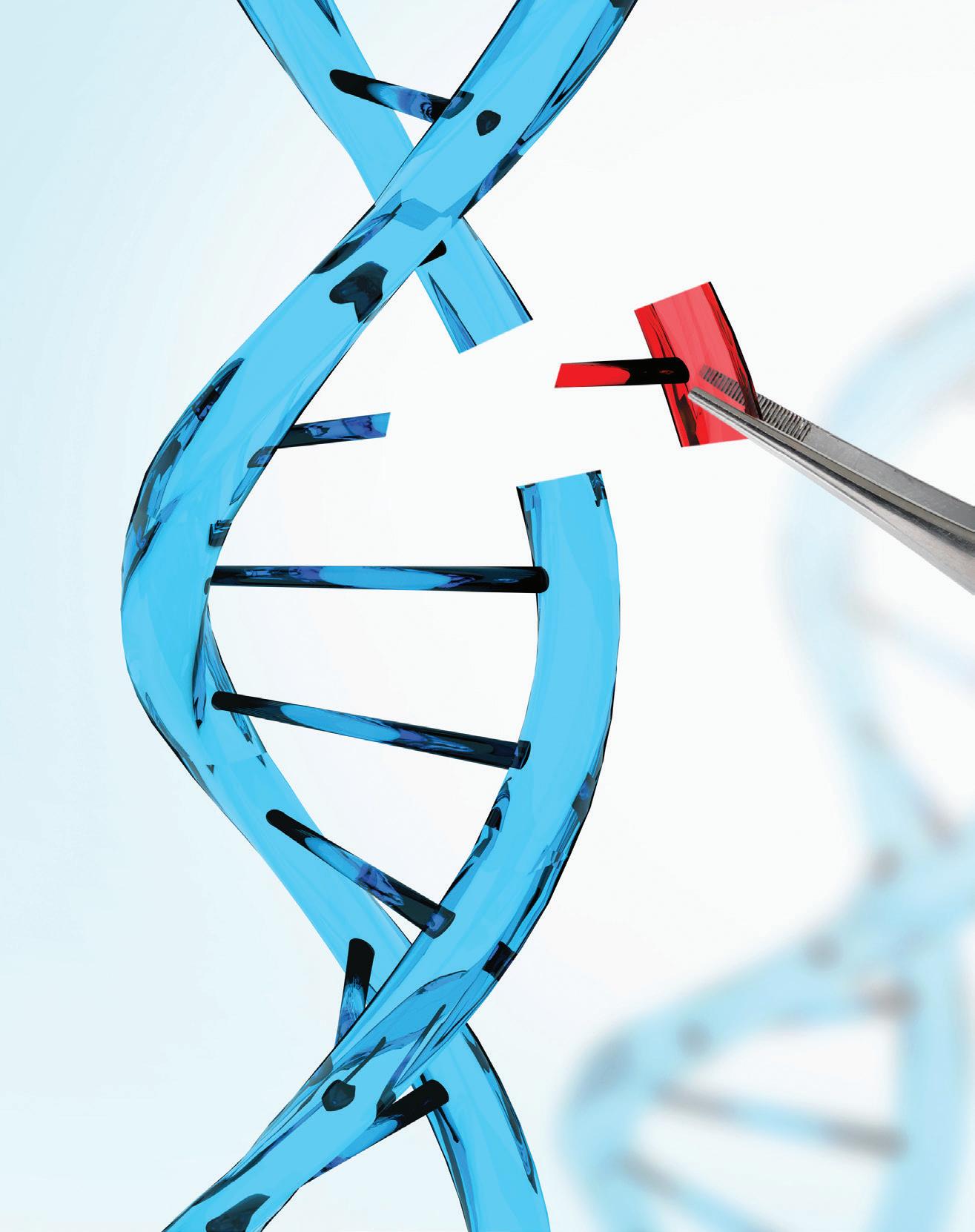
6 minute read
Medical Ethics at the Present Time
Interview with Dr. Ana Luis Caballero Elvira, chairwoman of the ethics committee of iBiomed
Advertisement
Mexico definitely remains a developing country, especially in the area of health care. One proof of this is that the expected life span of Mexicans has gone from 42 years in 1940 to 75 years in the year 2000 (1).
To what do you attribute this development in Mexico?
I attribute it mainly to development in the area of medicine in general, thanks to which all Mexicans have had access to social security and medical attention in public hospitals, as well as to various specific programs that have been developed in the course of our history. These include programs established by presidential decree and of course the development of new treatments, particularly for chronic-degenerative diseases. This development also has very largely to do with the improvement of basic services in the home, such as clean drinking water, which is of vital importance in preventing gastrointestinal illnesses, which used to be lethal.
Looking at the other side of the panorama, what do consider the areas of opportunity for improving the Mexican public health system?
The foremost area of opportunity for improvement is increasing the number of doctors in accordance with population growth, as well as the creation of better health programs, so that all Mexicans can have access to new treatments, whether these involve actual cures for their ailments or simply improved quality of life.
In general terms, could you offer a personal definition of the notion of medical ethics?
From my own experience, I can say that it is the care of the patient within a framework of values acquired in the whole course of our lives, starting primarily from the education we receive at home. It involves not prioritizing the progress of science by putting vulnerable populations at risk. We have to forget about achieving the recognition of the medical community, and we have to remember the oath we took in order to become part of that community: the promise to use our knowledge and skills to safeguard the health of patients.
To what extent do you believe that future progress in science and medical technology will be compatible with the dignity and centrality of the human person?
I believe there is still a long way to go before the paths will converge. Technology has ceased to be a support for human beings: in the contemporary world, it has become the focus of everything. We have to pay more attention to our surroundings: to the consequences, for example, of generalized access to the internet. It is true that this has opened up frontiers all around the world, facilitating global communication and remote work, but at the same time social media can prevent us from communicating directly with one another. We may be in a meeting, but with our eyes glued to our smartphones, rendering our everyday lives a virtual reality in every sense. Technological progress and the implementation of mechatronics in the area of medicine have made certain surgeries faster and less invasive, but I come back to the same issue: that patient-doctor relations have also changed. I don’t wish to generalize, but doctors are sometimes more focused on the programs through which medical history can be made, and end up forgetting really to observe their patients, to focus on asking them questions and giving them the treatment that can alleviate their conditions.

In short, we have also been dehumanized through all of this progress. We have affected our planet in the process, as well as ourselves, in our quest to live within a nonexistent reality.
We know that many developments in medicine and technology generate complex challenges: everything from the validation of cloning to the therapeutic use of cannabis to stem cell tissue engineering… As far as Latin America is concerned, what is the context (economic, sociological, political, and psychological) in which these issues can be best resolved in the future?
There is a serious debate about the participation of the all the spheres of reflection involved. Changes need to be made, or at least legislative measures need to be taken so that cloning and stem cell tissue engineering can be carried out upon the ethical foundations of our society. There are countries that already permit the use of these development for therapeutic purposes, such as the United Kingdom, Sweden, and France. As a result, I believe scientists interested in these matters will emigrate to those countries in order to be able to make use of their skills, or, for example, to the United States, where the use of public funds for such research is forbidden on moral and ethical grounds, but private investment is permitted. In this way, as I understand it, both approaches can be analyzed.
Therapeutic cloning through stem cells, on the other hand, has opened a path to regenerative medicine, giving hope to people suffering from very serious conditions. The issue has provoked religious and ethical debates which cannot be resolved by most members of our society: we are facing a situation in which society has preconceived ideas and the superficial media treatment of the issue (typical of our era) does not help in achieving a consensus for allowing the progress and control of scientific knowledge on behalf of humanity. Neither must we forget the conflict over rights, the question of who shall have priority and who must assume responsibility for these choices. We need to reconcile respect for human dignity with the rights of patients to gain access to treatment, since both of these objectives contribute equally to the society in which we live.

In conclusion, I believe that the challenges facing us are too large and complex to be resolved immediately. They must be seen and analyzed as individualized problems. It is easier to find solutions for all through the application of pragmatism and common sense to circumstances as they arise.
(Interview conducted by the editor-in-chief of Clinical Research Insider.)
1. See José R. Narro, José D. Rodríguez, Carlos T. Viesca, and Luis Felipe H. Abreu, “Ética y salud. Retos y reflexiones,” Gaceta médica de México (Mexico City, 2004).










